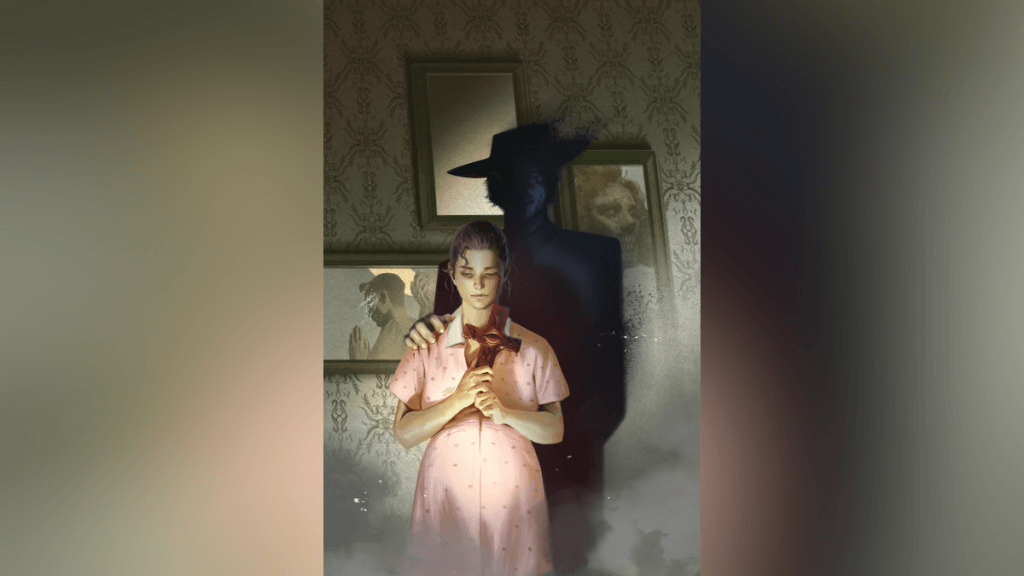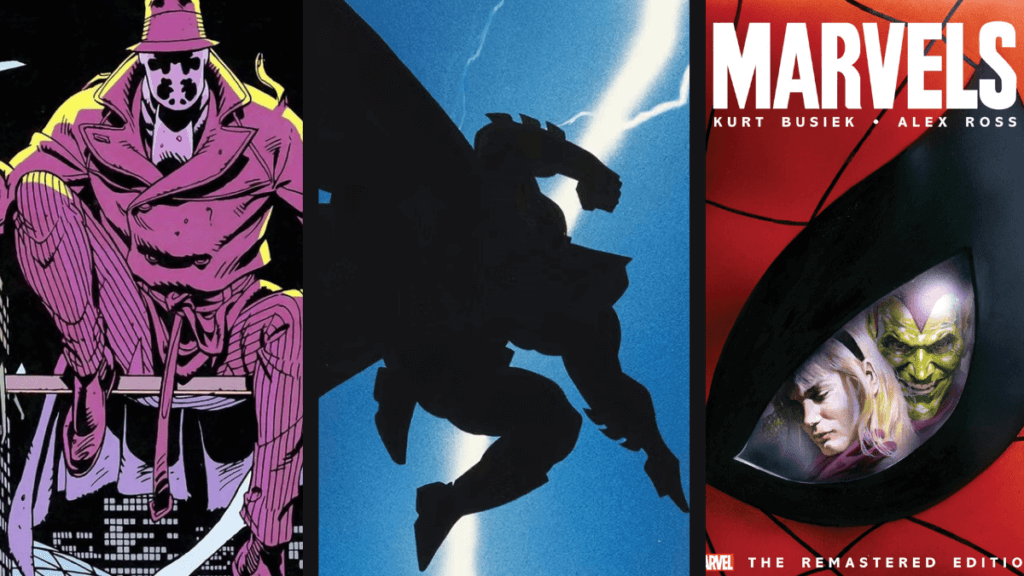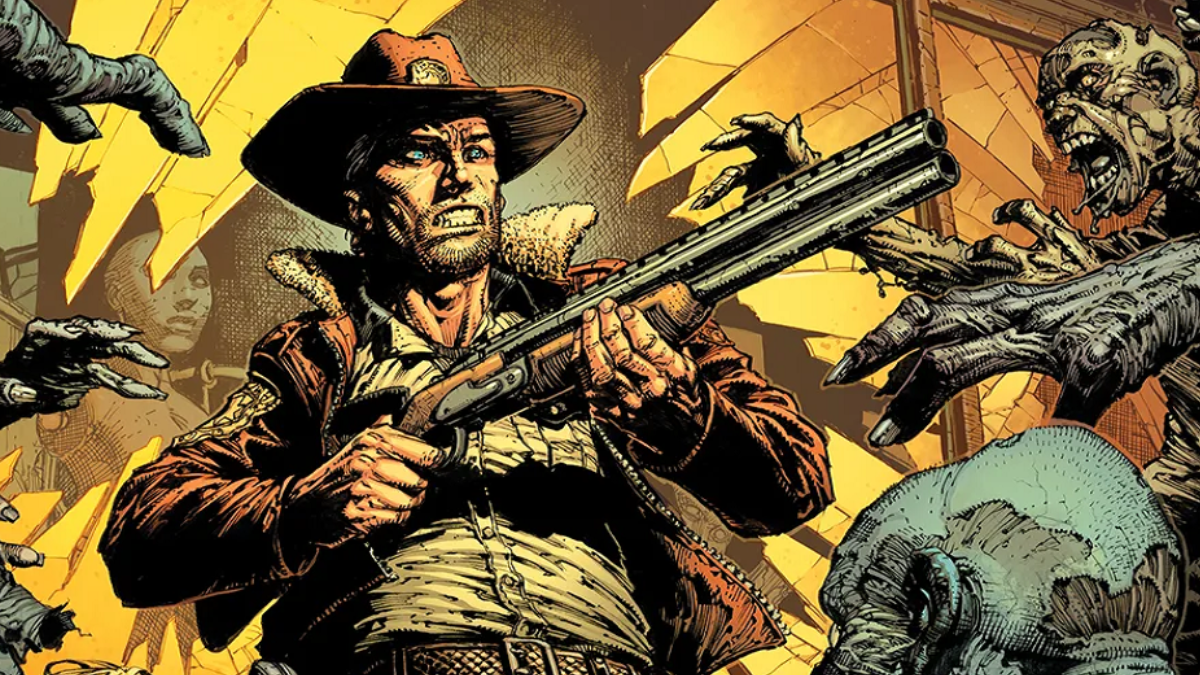
The original opening to The Walking Dead comics took inspiration from George A. Romero’s seminal zombie work Night of the Living Dead.
Robert Kirkman’s The Walking Dead has one of the most iconic opening sequences of all-time. Our protagonist Rick Grimes wakes up in an empty hospital, ambling around the destroyed, abandoned corridors with nobody in sight… except for the undead.
Of course, the opening isn’t exactly unique; John Wyndham’s 1951 post-apocalyptic novel Day of the Triffids begins with the main character waking up in a hospital bed. Then, decades later, Danny Boyle’s 28 Days Later opens in a similar way. The ‘hospital bed’ trope has proven to be one of the finest ways you could open an apocalyptic story.
However, before Kirkman landed on the idea to have Rick Grimes awake in a hospital, he first drafted the opening as a homage to Night of the Living Dead — a movie that many consider to the the first ‘modern’ zombie movie. Even the imagery contains direct references. Some reports suggest that The Walking Dead was initially supposed to tie-in to Romero’s classic, but this was never confirmed. See for yourself:
The first draft of #TheWalkingDead comics opened with a reference to George A. Romero’s ‘Night of the Living Dead’ pic.twitter.com/5yZjghUQOM
— The Walking Dead News (@TWDUniverseNews) March 18, 2025
Original panels from the opening of The Walking Dead
In the first draft, both Rick and Lori are watching the news bulletin. Rick makes some quips — liking it to the infamous Orson Welles War of the Worlds broadcast — while Lori expresses her immense fear. Their son, Carl Grimes, is not involved.
Kirkman himself has previously admitted that the original pitch “was terribly cliché, now that I look back on it,” he wrote in The Walking Dead Deluxe #2.
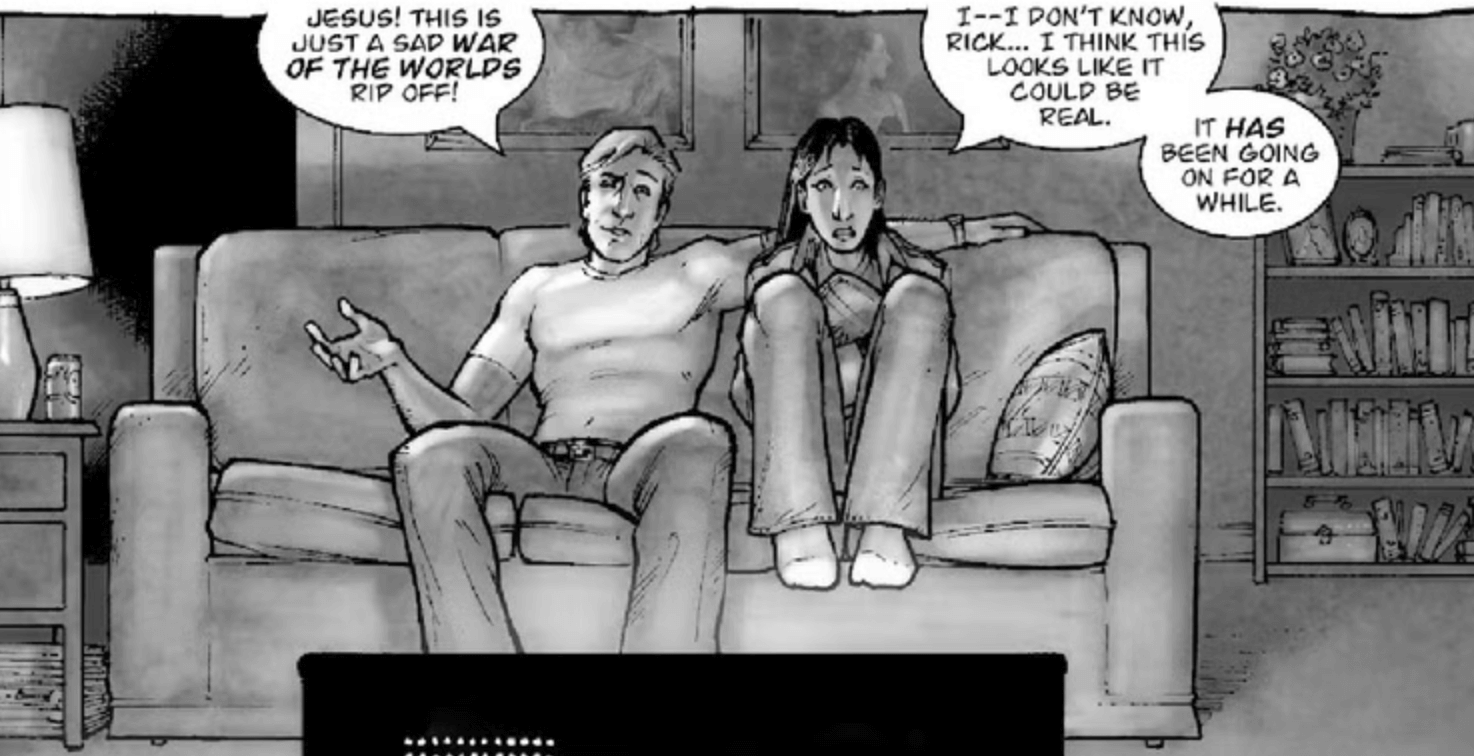
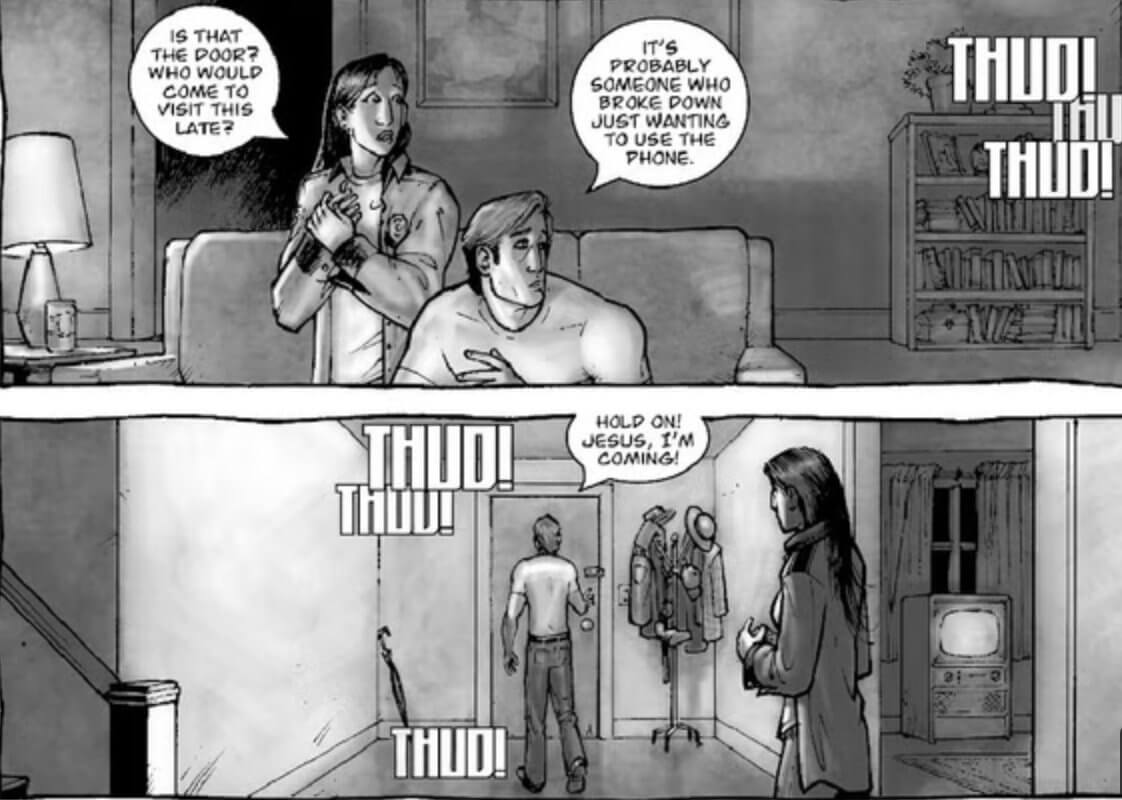
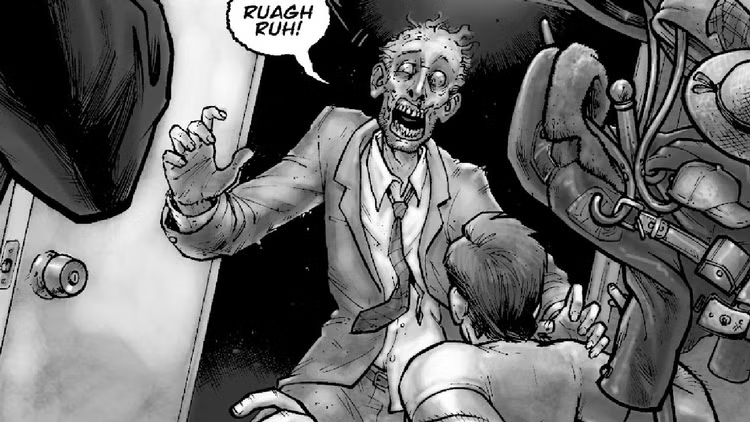
While it may have began with an over-used trope, I’m sure Kirkman has zero regrets. The Walking Dead grew to become the biggest zombie franchise on the planet. The comics may have concluded, but AMC’s The Walking Dead TV universe continues to grow and expand.

